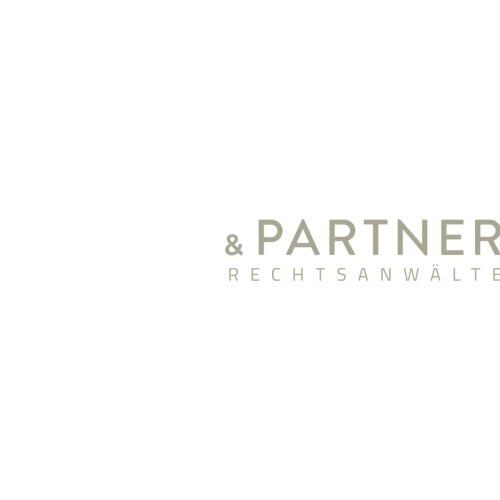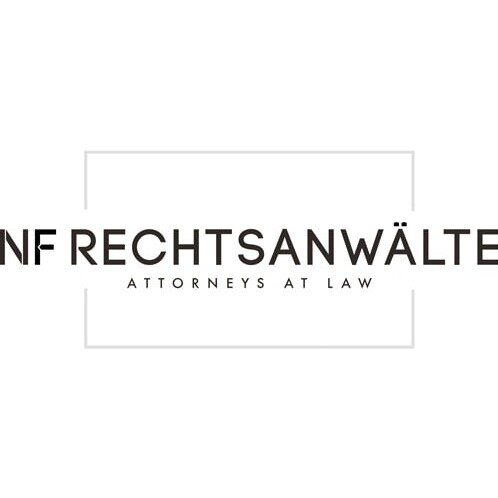Best Corporate & Commercial Lawyers in Vienna
Share your needs with us, get contacted by law firms.
Free. Takes 2 min.
List of the best lawyers in Vienna, Austria
About Corporate & Commercial Law in Vienna, Austria
Corporate and commercial law in Vienna forms the backbone of business operations and commercial transactions in Austria's vibrant economy. Located at the heart of Central Europe, Vienna is a key center for many multinational companies and local enterprises, making it essential for businesses and entrepreneurs to understand the local legal landscape. Corporate law generally governs the formation, management, and dissolution of companies, while commercial law covers the regulation of business contracts, transactions, and trade practices. Vienna's legal framework blends Austrian civil law traditions with modern European Union regulations, ensuring a stable and attractive environment for domestic and international business ventures.
Why You May Need a Lawyer
Engaging a corporate and commercial lawyer in Vienna is often crucial for successfully navigating Austria's complex legal system. Situations where professional legal assistance becomes important include:
- Establishing a company or branch office in Austria
- Drafting and negotiating business contracts and agreements
- Mergers, acquisitions, or restructuring of enterprises
- Joint ventures or cross-border partnerships
- Ensuring compliance with Austrian and European Union regulations
- Resolving disputes with business partners, suppliers, or customers
- Protecting intellectual property and managing licensing agreements
- Advising on employment, data protection, and competition law issues
A corporate and commercial lawyer can help identify legal risks, ensure compliance, and safeguard your interests throughout every business stage.
Local Laws Overview
Austria, including Vienna, has a well-structured set of laws regulating corporate and commercial activities. Key aspects include:
- Company Types: The most common entities are the GmbH (limited liability company), AG (joint-stock company), and OG/KG (partnerships). Each has distinct establishment, governance, and reporting requirements.
- Company Formation: Incorporation involves notarial deeds, registration with the Austrian Company Register, and compliance with minimum share capital requirements (for example, 35,000 EUR for GmbH).
- Commercial Contracts: Austrian contract law is largely codified in the Allgemeines Bürgerliches Gesetzbuch (ABGB) and the Unternehmensgesetzbuch (UGB). Contracts should be clear, lawful, and take into account mandatory consumer, competition, and data protection laws.
- Mergers and Acquisitions: Transactions involving the transfer of shares or assets require careful due diligence, especially regarding regulatory notifications and labor law obligations.
- Compliance: Companies must adhere to both Austrian and relevant EU directives covering anti-money laundering, competition, labor, and environmental obligations.
- Dispute Resolution: Vienna offers efficient access to the Austrian courts and is recognized as a major center for international commercial arbitration.
Frequently Asked Questions
What is the most common company form in Vienna?
The limited liability company (Gesellschaft mit beschränkter Haftung, or GmbH) is the most popular form due to its flexibility, limited liability, and relatively simple formation process.
How long does it take to set up a company in Vienna?
Setting up a company such as a GmbH in Vienna typically takes two to four weeks, depending on the preparation of documents and processing times with authorities.
Is a physical office required to register a company?
Yes, Austrian company law requires that your company have a registered office address in Austria, which can be in Vienna.
Can a foreigner own 100 percent of an Austrian company?
Yes, foreigners and foreign entities can generally own 100 percent of an Austrian company, except in some regulated sectors where limitations may apply.
What are the compliance obligations for Austrian companies?
Typical obligations include annual financial statements, regular tax filings, employment law compliance, and in some cases, specific licenses and reporting.
Do commercial contracts need to be in German?
While parties can agree on a contract language, contracts with Austrian authorities or for registration purposes often need to be submitted in German or accompanied by a certified translation.
How can business disputes be resolved in Vienna?
Disputes may be resolved through negotiation, mediation, Austrian courts, or arbitration. Vienna is especially known for its international arbitration facilities.
What are the main taxes applicable to corporations?
Corporate income tax (Körperschaftsteuer) is at a rate of 24 percent, and companies may also be subject to value-added tax (VAT), local taxes, and social security contributions for employees.
Is it necessary to have a supervisory board?
A supervisory board is required for larger companies or those with more than 300 employees, but small businesses generally do not need one.
What are the key employment law considerations for businesses?
Austrian employment law is protective of employees and covers contract formation, termination, collective bargaining agreements, working time, and compliance with payroll obligations.
Additional Resources
For further guidance and official information, the following resources can be helpful:
- The Austrian Federal Economic Chamber (WKO) - Offers information and advisory services for entrepreneurs and companies.
- The Commercial Register (Firmenbuch) - For company registration and legal documentation.
- The Austrian Chamber of Commerce in Vienna - Assists with local business support and networking.
- Vienna Business Agency - Provides support for startups and foreign investors setting up in Vienna.
- Austrian Arbitration Institutions - For information on dispute resolution and arbitration services.
- Federal Ministry of Justice (BMJ) - Information on corporate legislation and official forms.
Next Steps
If you are considering starting a business, entering into commercial transactions, or facing legal challenges related to corporate and commercial law in Vienna, it is recommended to consult with a qualified Austrian lawyer who specializes in these fields. Begin by gathering relevant documents related to your matter and outlining your objectives and concerns. You may contact the Austrian Bar Association (Österreichische Rechtsanwaltskammertag) to find a suitable attorney, or seek referrals from business organizations and the Vienna Chamber of Commerce. Early legal consultation helps prevent costly mistakes, ensures regulatory compliance, and positions your business for long-term success in Vienna’s dynamic commercial landscape.
Lawzana helps you find the best lawyers and law firms in Vienna through a curated and pre-screened list of qualified legal professionals. Our platform offers rankings and detailed profiles of attorneys and law firms, allowing you to compare based on practice areas, including Corporate & Commercial, experience, and client feedback.
Each profile includes a description of the firm's areas of practice, client reviews, team members and partners, year of establishment, spoken languages, office locations, contact information, social media presence, and any published articles or resources. Most firms on our platform speak English and are experienced in both local and international legal matters.
Get a quote from top-rated law firms in Vienna, Austria — quickly, securely, and without unnecessary hassle.
Disclaimer:
The information provided on this page is for general informational purposes only and does not constitute legal advice. While we strive to ensure the accuracy and relevance of the content, legal information may change over time, and interpretations of the law can vary. You should always consult with a qualified legal professional for advice specific to your situation.
We disclaim all liability for actions taken or not taken based on the content of this page. If you believe any information is incorrect or outdated, please contact us, and we will review and update it where appropriate.
Browse corporate & commercial law firms by service in Vienna, Austria
Vienna, Austria Attorneys in related practice areas.

















